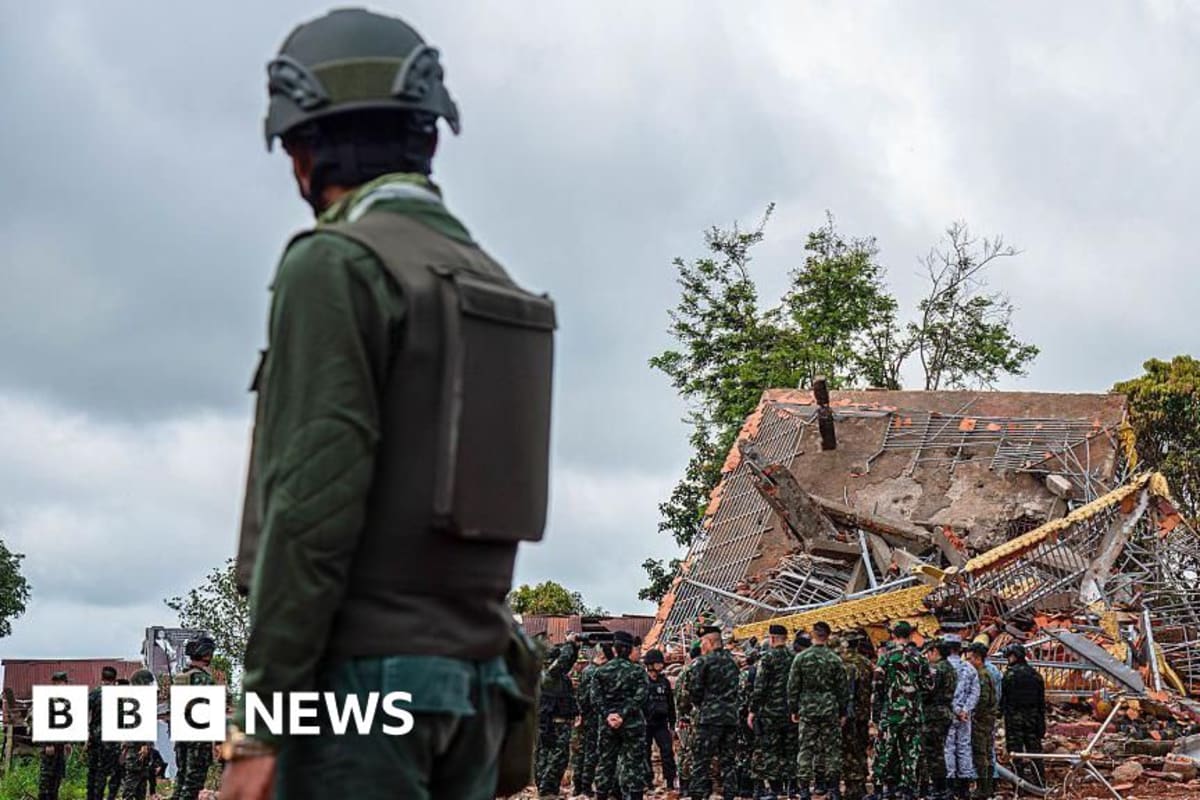Thailand-Cambodia Propaganda War: Border Disputes Fuel Online Tensions

A simmering propaganda war between Thailand and Cambodia is gaining momentum, primarily online, fueled by long-standing territorial disputes and historical grievances The recent escalation involves a surge in nationalist rhetoric on social media platforms, with both sides accusing the other of encroaching on their sovereignty The situation presents a challenge to regional stability and cooperation The heart of the issue lies in the contested border region surrounding the Preah Vihear Temple, a UNESCO World Heritage site
Background
Ownership of the temple has been a source of conflict for decades, culminating in armed clashes in 2008 and 2011 While the International Court of Justice (ICJ) ruled in favor of Cambodia's sovereignty over the temple in 2013, differing interpretations of the court's decision regarding the surrounding area continue to ignite tensions The online propaganda war manifests in various forms, including the spread of misinformation, the circulation of inflammatory content, and the orchestration of coordinated campaigns to sway public opinion Social media platforms, such as Facebook and Twitter, have become battlegrounds where nationalists from both countries engage in heated debates, often resorting to personal attacks and historical revisionism Fake news articles, doctored images, and provocative videos are widely shared, exacerbating the existing animosity The rise of social media has undoubtedly amplified nationalist sentiments and made it easier for misinformation to spread," says Dr Thitinan Pongsudhirak, a professor of political science at Chulalongkorn University in Bangkok
Governments in both countries need to take a more proactive role in combating disinformation and promoting dialogue to prevent the situation from escalating further Beyond the Preah Vihear Temple dispute, other historical grievances contribute to the ongoing tensions. Some Thais harbor resentment over Cambodia's alleged support for communist insurgents during the Cold War era.
Cambodians, on the other hand, recall the Thai occupation of their territory in previous centuries These historical memories are often invoked in online discussions, fueling nationalist fervor and hindering reconciliation The economic implications of the propaganda war are also significant The cross-border trade and tourism between Thailand and Cambodia, vital to both economies, could be negatively impacted if the tensions escalate further Investors may become wary of the instability and potential for conflict, leading to a decline in foreign investment The roles of both governments are complex
While officially advocating for peaceful resolution and diplomatic solutions, some elements within both states are accused of tacitly supporting or even actively promoting the nationalist rhetoric This ambiguous stance makes it difficult to de-escalate the situation and build trust To address the propaganda war, several steps need to be taken First, both governments should prioritize combating disinformation and promoting media literacy among their citizens
This includes working with social media platforms to remove fake news and hate speech Second, they should encourage dialogue and cultural exchange programs to foster mutual understanding and empathy Third, they should engage in serious negotiations to resolve the remaining border disputes and clarify the implementation of the ICJ ruling Finally, international actors, such as the ASEAN, can play a role in mediating the conflict and promoting regional stability The future of Thailand-Cambodia relations hinges on the ability of both countries to overcome their historical grievances and address the underlying causes of the propaganda war Failure to do so could lead to further escalation of tensions and potentially even renewed conflict, with detrimental consequences for regional peace and prosperity The current situation demands responsible leadership, proactive diplomacy, and a commitment to mutual respect and understanding
